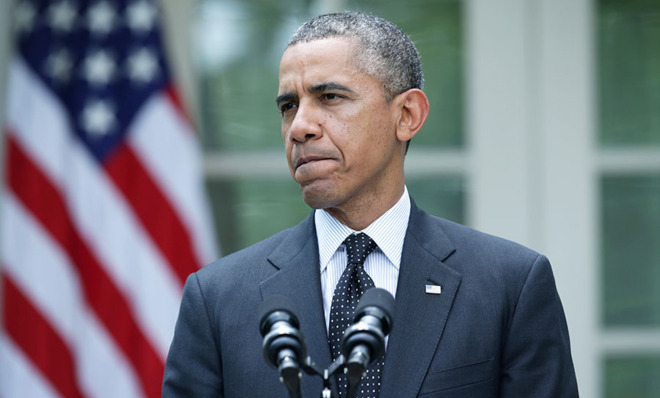These 5 things will definitely happen after Obama moves on immigration
Yes, "illegal" immigration will probably increase in the near-term


A free daily email with the biggest news stories of the day – and the best features from TheWeek.com
You are now subscribed
Your newsletter sign-up was successful
UPDATE: On Thursday night, Obama announced his executive actions on immigration reform. For details, click here.
Tonight, President Obama will outline the executive actions he'll take to pull millions of undocumented immigrants out of the shadows. The next day, in Las Vegas, he'll fill in the blanks.
Then, all heck breaks lose. Congress might or not shut down the government. Immediate legal challenges will flood in from all sides. We really don't know how the lives of the millions who are eligible will change over the next year. A lot depends on what happens next.
The Week
Escape your echo chamber. Get the facts behind the news, plus analysis from multiple perspectives.

Sign up for The Week's Free Newsletters
From our morning news briefing to a weekly Good News Newsletter, get the best of The Week delivered directly to your inbox.
From our morning news briefing to a weekly Good News Newsletter, get the best of The Week delivered directly to your inbox.
But here are five things that will happen, regardless of what happens next:
It will make America more of a magnet for undocumented immigrants. Come to America, find a job that Americans don't want to do, live in the shadows for a while, and wait for political pressure to boil over, forcing the president at the time to grant you some form of documented status. In 1986, President Reagan granted a form of amnesty for immigrants who came to the country before 1982. He actually used the word "amnesty." Reagan. A big difference: Congress agreed with him. But it continues a precedent that is hard to explain away to those who are struggling to escape poverty, crime, and desolation elsewhere.
"Illegal" immigration will probably increase in the near-term. It has, every time any form of amnesty has become law. Why? Politics and money, as Brad Plumer explains here. Congress did not fund border enforcement as well as they should have in 1986, and many of the employment provisions, which were designed to reduce the magnetic lure of the job market, were watered down to please various constituencies. Executive discretion dealing only with status issues will create unforeseen complications for employers today.
Immigration politics will become nastier in the near-term. You think you've heard the last of talk radio hosts bloviating about Ebola-carrying migrants sneaking across the southern border? It's about to get much worse, and much more toxic. By singling out certain classes of undocumented immigrants, Obama puts a bullseye on the backs of those who do not qualify for documented status. Add the idea that the president is acting like a dictator and — kaboom: the act of granting amnesty becomes even more associated with one political party.
A free daily email with the biggest news stories of the day – and the best features from TheWeek.com
No one will be happy. Pro-immigrant advocates will not think the amnesty goes far enough. (It won't give these immigrants automatic health benefits). The anti-amnesty side will go bonkers. And most Americans will probably not approve, even though they broadly support the end state — a legal status for undocumented immigrants and comprehensive reform of the system.
Jeb Bush's presidential decision gets harder. Jeb is a pro-reform guy. He favors amnesty. He favors stronger enforcement. He favors a compassionate policy. He has a better intuitive grasp of immigration issues than any other potential 2016 presidential candidate. And his party, never hospitable to his point of view, is just about to get more hostile.
Marc Ambinder is TheWeek.com's editor-at-large. He is the author, with D.B. Grady, of The Command and Deep State: Inside the Government Secrecy Industry. Marc is also a contributing editor for The Atlantic and GQ. Formerly, he served as White House correspondent for National Journal, chief political consultant for CBS News, and politics editor at The Atlantic. Marc is a 2001 graduate of Harvard. He is married to Michael Park, a corporate strategy consultant, and lives in Los Angeles.
